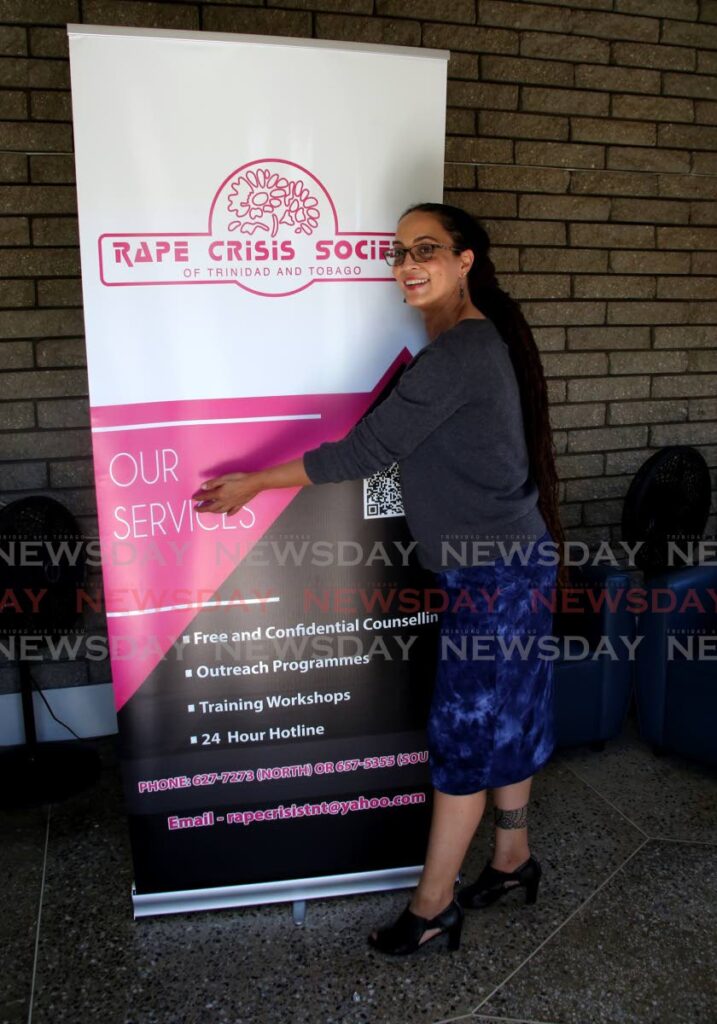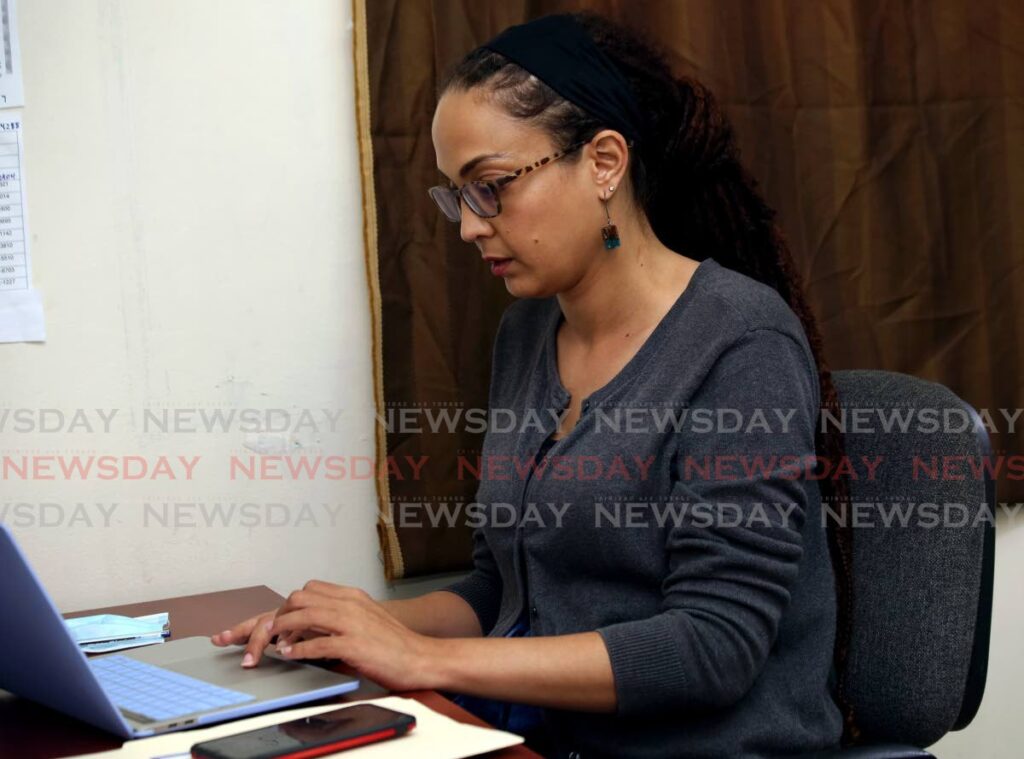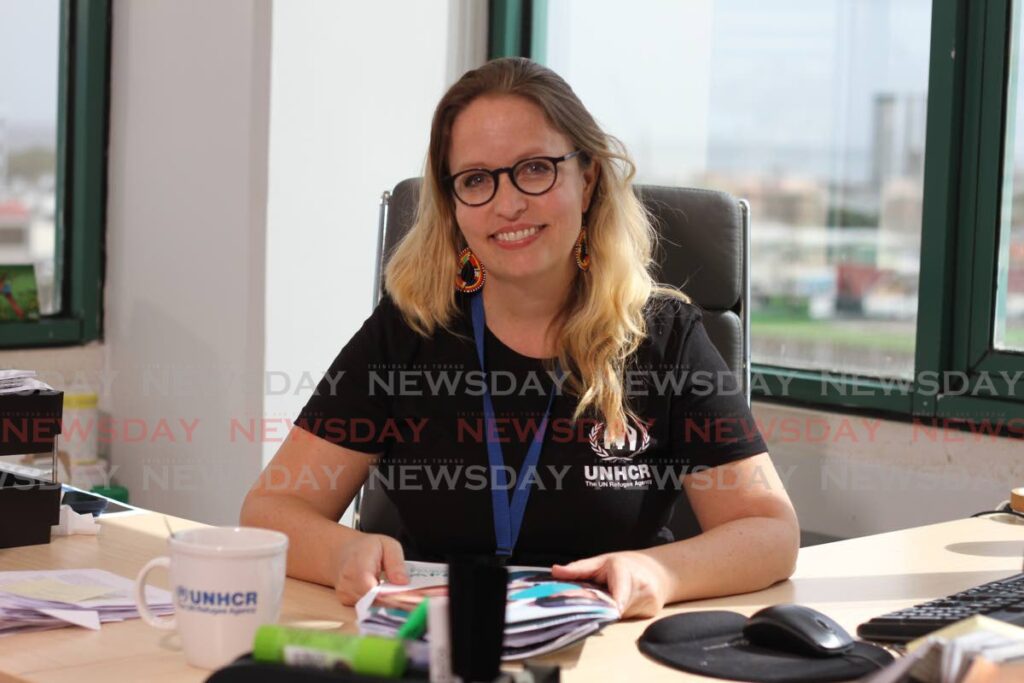Ayudate: Rape Crisis Society offers help to Spanish-speaking migrants

The Rape Crisis Society of TT has been providing support to victims of sexual and gender-based violence (GBV) since 1984.
In May, the society took on a new responsibility with the launch of a bilingual hotline that is accessible to both TT nationals and migrants from Venezuela.
Project manager Kimiko Scott told Sunday Newsday over the years the organisation had extended its advocacy reach through a number of different projects, with the Ayúdate hotline being is its most recent. Ayudate is Spanish for “help you.”
“The toll-free hotline, 866-7428, operates at night – from 6 pm to 6 am – seven days a week and is accessible to both males and females, in English and Spanish… In terms of the need we assessed when we started, it seemed to have been more of a priority at night. For instance, the circumstances may be such that people may need privacy to make these types of phone calls, like while children are asleep.”
Scott said there are both Venezuelan migrants and bilingual Trinidadians who are listeners on the line, three of whom are male.

“This is to help people who may be seeking advice on addressing cases of domestic violence, harassment, depression, post-traumatic stress and overall mental health.” She said callers to the hotline who demonstrate severe trauma or express a desire are offered access to follow up professional counselling.
“From May when we started to the end of October, we had fielded over 200 calls, and I would say about 56 per cent were Venezuelan migrants and the other percentage would have been local population. Approximately 20 per cent of our callers thus far have been male.”
Scott said during the state of emergency, the Society had seen the number of reports for gender-based violence almost double. “The SoE magnified the need for access to services and support that can help people work through the things they may be facing. These requests have increased through our regular 24-hour hotline as well.”
She said the listeners have received intensive training in any crisis situations that may arise, how to deal with cases that involve children, and how to treat with someone who is in an immediate domestic violence situation. The training, she said, will be beneficial to the listeners too, as it provides them with skills they can use when they move forward to new job opportunities.
Because the number is attached to a landline, listeners are required to be at the Society’s compound in St James for their shift. Two listeners and their supervisor work from 6 pm to 10 pm, and another shift comes on from 10 pm to 6 am.
“The project is a collaboration with the Better Together Challenge, a partnership led by the US Agency for International Development and the Inter-American Development Bank. It is a global initiative to crowdsource, fund, and scale innovative solutions from anywhere in the world to improve the lives of Venezuelans and communities hosting them across Latin America and the Caribbean,” Scott said.
“Projects across the region include the host population as well because the agencies appreciate when support is offered to migrants. You can’t leave out the host community, so finding that balance was included in the bilingual consideration as well.”
The Digicel Foundation assisted with the toll-free line, making sure that even if someone doesn’t have credit on their phone they can still access the support, which may also include referrals to other organisations for services the Society is unable to provide.
“For instance they may need legal assistance, or to go to a particular division of the police service geared towards migrants. We can provide a connection there.”

Scott said in addition to collaborating with organisations like the Living Water Community, Legal Aid and the Family Planning Association to provide advocacy services, the Society also works closely with the United Nations High Commissioner for Refugees (UNHCR) to provide regular counselling for refugees and migrants who need support with the trauma of displacement.
“Our support is offered to other migrants, but the Venezuelan migrants is perhaps the most pressing...We are able to offer them counselling sessions to develop coping skills and help with their ability to manage emotions while in a foreign country and being in a space that is unfamiliar.”
UNHCR TT head of national office Miriam Aertker told Sunday Newsday, "Taking care of one's mental health is just as important as the physical, to live a healthy life. UNHCR has long advocated for options to be in place to help refugees and asylum seekers, as well as other displaced people, access services to help them cope with the traumas of displacement, including fleeing dangerous situations, feelings of isolation, fear as they try to integrate into a new society, as well as gender-based violence and exploitation. We have supported the Rape Crisis Society for the last three years because we value their expertise, experience, and dedication in managing these complex issues among this very vulnerable population."
Scott said the next part of the Society’s rollout to help migrants with the trauma of dealing with displacement is an awareness campaign in the form of an animation series called Meet the Camacho family. She said some episodes have already been launched on the Society's social media pages. The ten episodes, both in Spanish and English, will explore some of the issues experienced by migrants.
“Xenophobia, sexual harassment, the mental health distress of being in a different country and not being able to work in the field in which you’re qualified, most times having to take any job that you can,” Scott said.
As part of the the 16 days of Activism Against GBV that began on November 25, the Society will host a virtual candlelight vigil today (November 28) at 5 pm.
“You can send pics of yourself holding your candle, or join on Zoom,” Scott said.
To register for the candlelight vigil go to https://bit.ly/3EmmfrF
For further information contact Society’s project manager Kimiko Scott at 465-5690 or email rcsprojectmanager@gmail.com.

Comments
"Ayudate: Rape Crisis Society offers help to Spanish-speaking migrants"